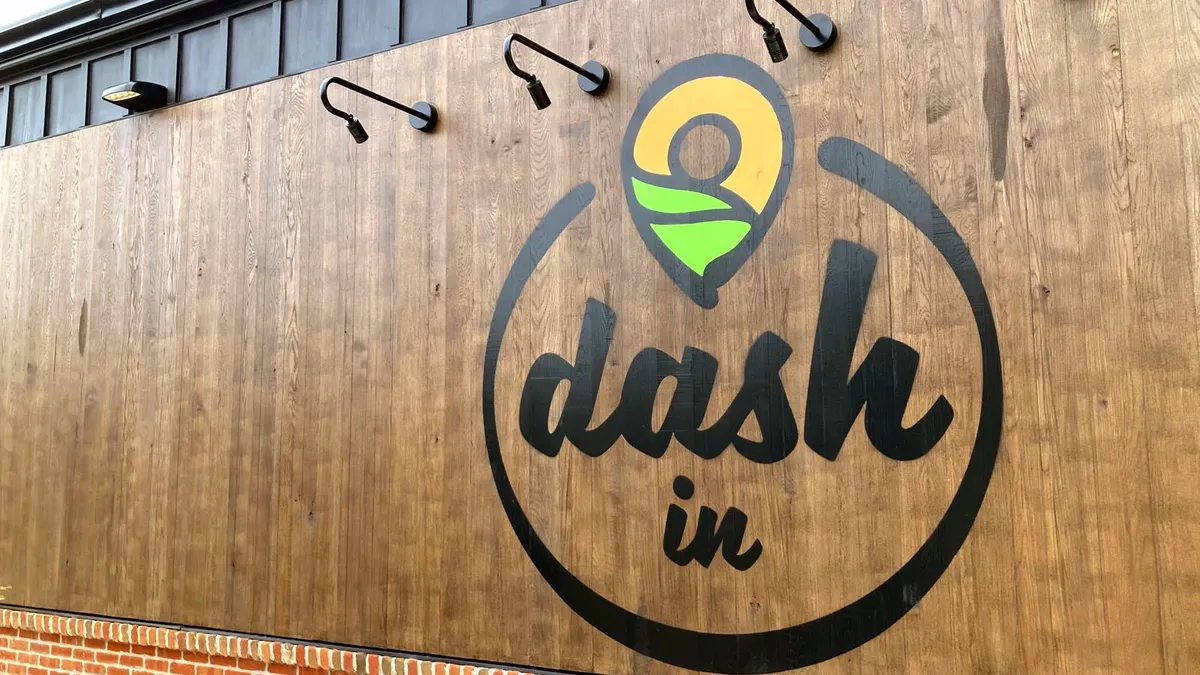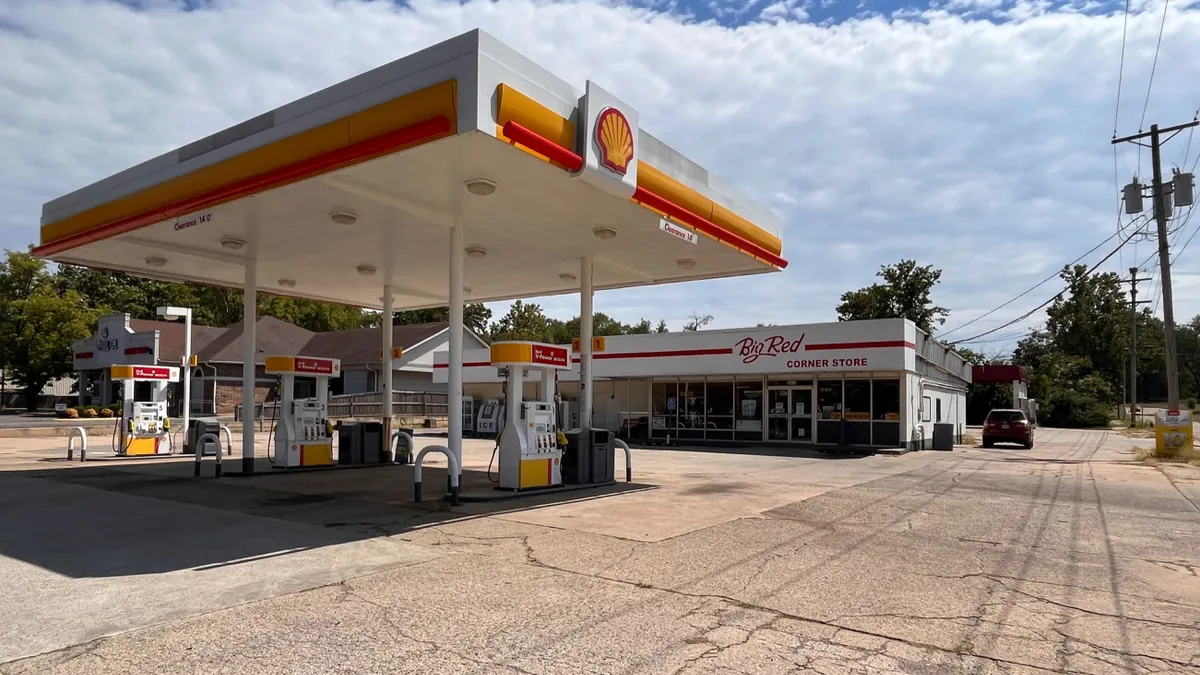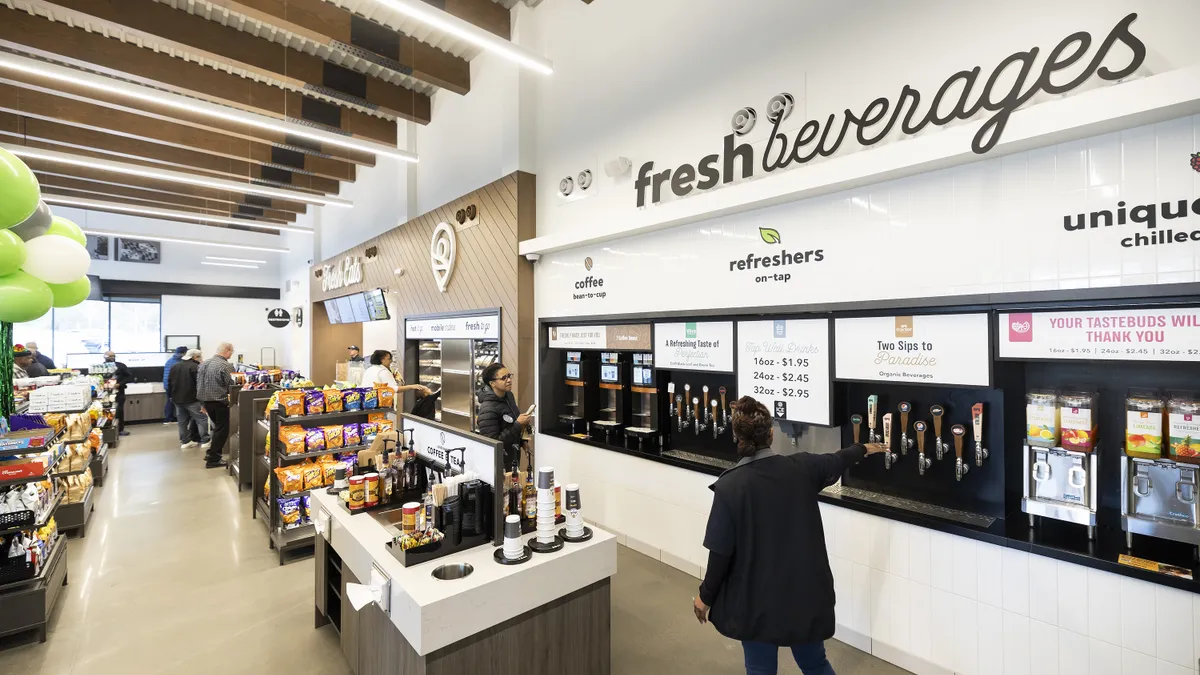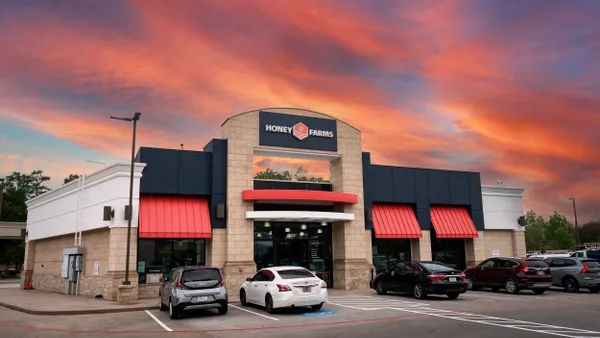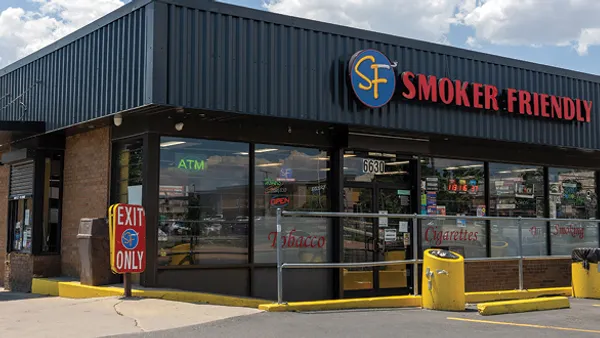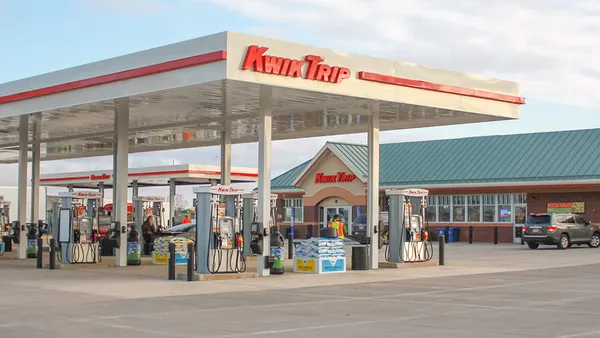About a month after being named president and CEO of the Wills Group, parent of Dash In convenience stores, Julian “Blackie” Wills saw his company break the top 15 on Fortune’s Best Workplaces in Retail list for 2023.
Although this was “obviously a tremendous accomplishment,” Wills said he believes Dash In — which placed number 14 on Fortune’s list for small and medium-sized businesses — is ready to crack the list of larger companies, which includes companies like Target, Wegmans Food Markets, and fellow East Coast c-store chain Sheetz.
“The question is, how do we move up in the years ahead?” Wills said in an interview. “Not only do we want to move up this list, but I expect us eventually to outgrow that small- and medium-sized business list and move up to that large employer list — and that's going to be a little bit more challenging.”

Wills already has a roadmap for addressing that challenge. He noted that Dash In, which operates 55 stores in Maryland, Delaware and Virginia, plans to triple its store count by 2030 as it embarks on a journey into the southern U.S.
That expansion is expected to commence in 2025, when the first Dash In stores will arrive in the Carolinas.
Expansion plans underway
Dash In’s southern expansion is still in the early planning stages. The company has been sourcing sites in the Carolinas for the past few months and has recently started signing property deals, Wills said.
When asked why the Wills Group chose the Carolinas to launch its southern expansion, Wills noted that the region is contiguous with Dash In’s current geographic footprint. However, he also noted that other states that border Dash In’s footprint, such as Pennsylvania and New Jersey, are not in its expansion plans because of their high gasoline tax rates and serviced gas pumps, respectively.
The Carolinas’ population growth also makes this region attractive, Wills said. According to data from the U.S. Census Bureau, North and South Carolina experienced the third and sixth highest numeric population growth, respectively, of any U.S. states from 2021 to 2022.
“We know that's where the population is moving, because [the Carolinas] are tax friendly states, they're business-friendly states with a lower cost of living,” Wills said. “We want to follow that population growth into the Carolinas — that's really kind of the driving factor for us.”
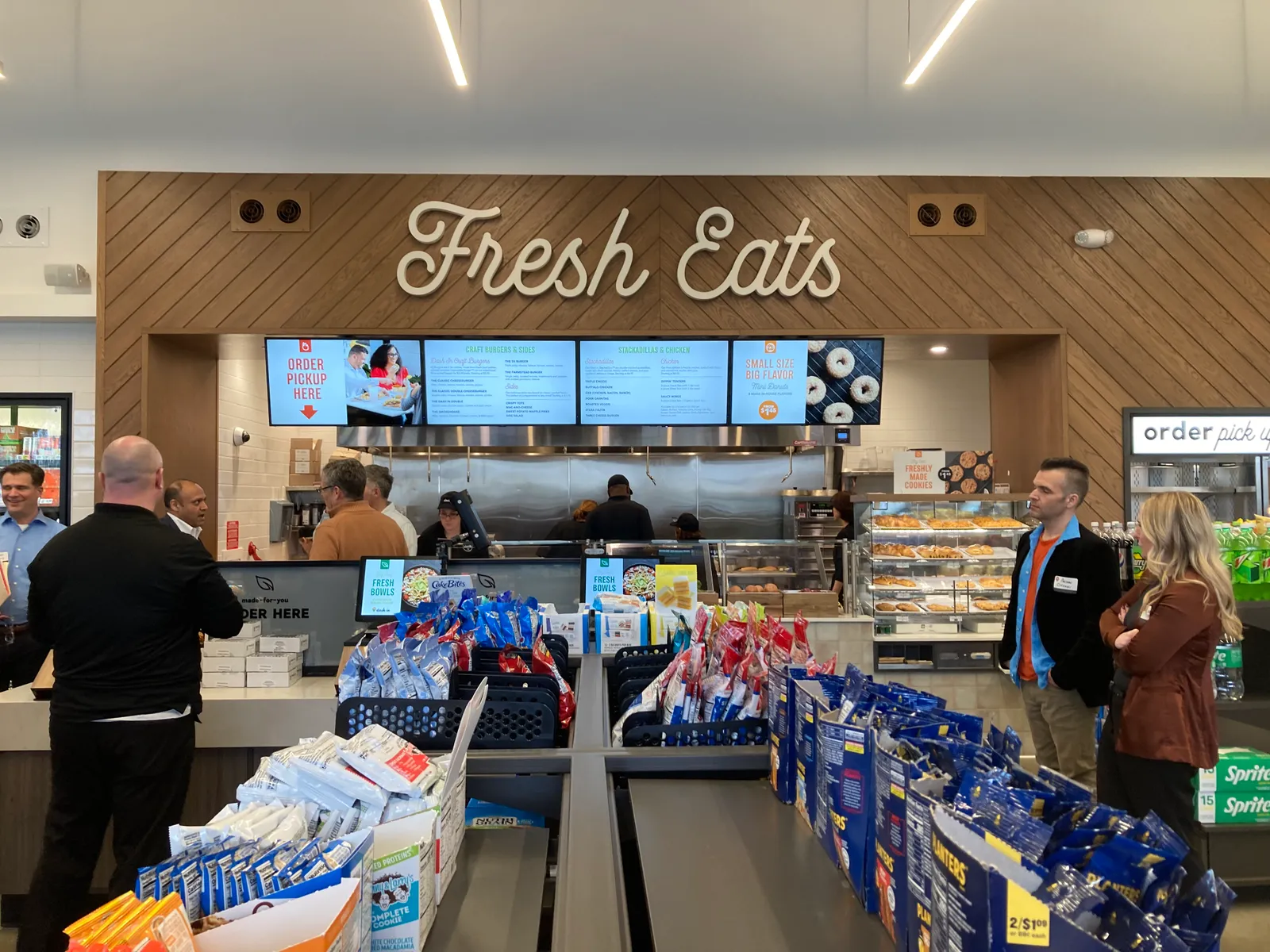
Dash In won’t be the only c-store retailer building its presence in the region. North Carolina has attracted several large c-store chains over the past couple of years, such as Wawa, Royal Farms and Refuel, while South Carolina is part of Buc-ee’s nationwide growth initiative.
Wills said he’s aware of the competition Dash In will face in the region — and that he embraces it.
“There’s others that are moving into that market… I think it’s due for a little variety, and [for] another player to come in,” he said.
New stores, new format
Back in March, Dash In debuted a new food-focused store design in Loudoun County, Virginia.
The store highlights foodservice for shoppers as soon as they enter, with its made-to-order kitchen visible through the double glass doors. The store features food made with fresh ingredients like fresh-cracked eggs, non-frozen beef and minimal processed items, along with plenty of indoor and outdoor seating.
Shortly after the new format opened, its foodservice sales were double those of the next-highest Dash In store, Wills said.
Fast forward to today, and the Wills Group is not only looking to implement this format and foodservice offering into all new Dash In locations, but to its existing ones as well, Wills said. This is one of the company’s top priorities for 2024, he noted.
“Out of the gate, we were kind of off to the races,” he said. “We're headed down that path and it's given us confidence that we're able to do this.”
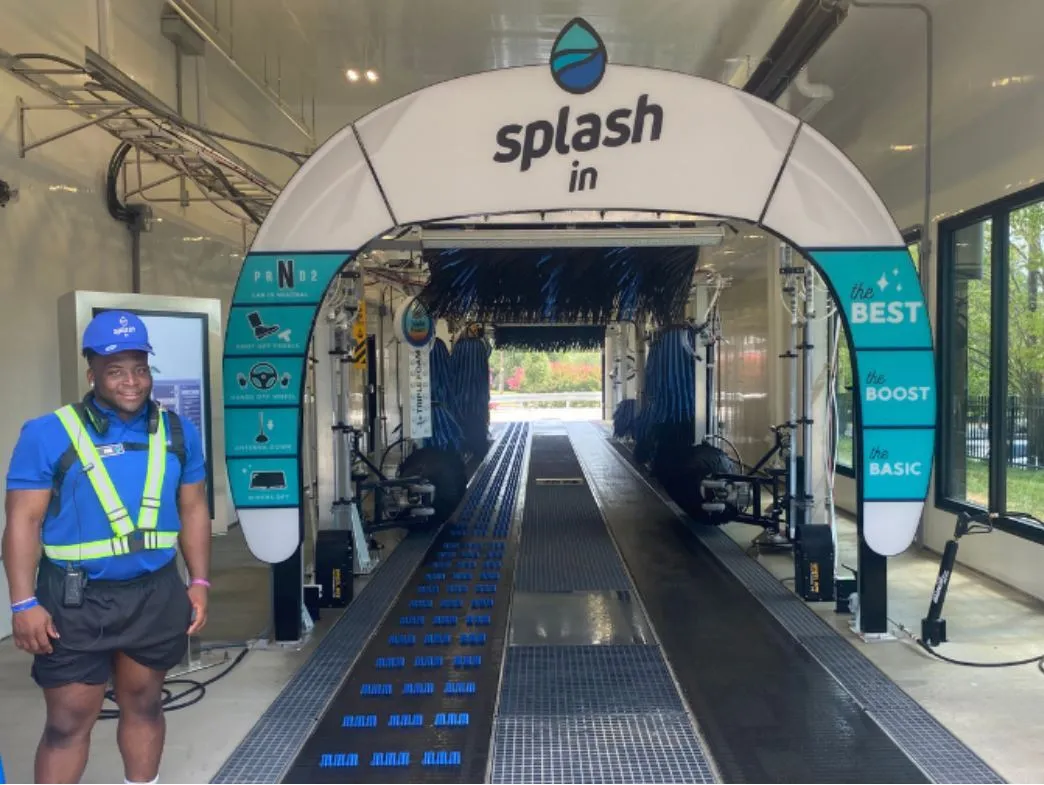
The Wills Group also has major growth plans for its Splash In car wash program. Until this summer, the company’s 50-plus Splash Ins were only featured at Dash In stores.
In August, the Wills Group opened its first standalone Splash In in La Plata, Maryland. The 95-foot tunnel is designed to handle more cars in less time and is built to minimize water waste.
Wills called this a “milestone moment” for the company, and said that he expects to have at least 30 of these standalone car washes in its network by 2030.
“There's not really anybody that does gas-convenience that has done that, at least in our market … We think that can be a competitive advantage and differentiator for us,” he said



